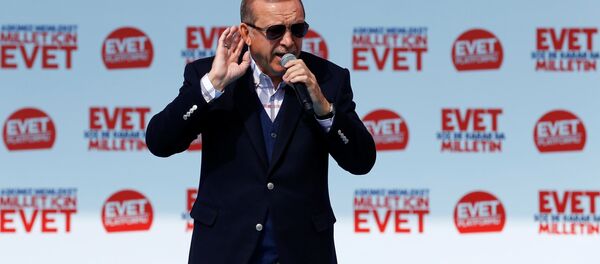PRAGUE (Sputnik) — Earlier in the day, Austrian President Alexander Van der Bellen said that the constitutional amendments broadening the powers of Turkish President Recep Tayyip Erdogan pushed Ankara away from EU values and accession to the bloc. A source from NATO told Sputnik that the alliance had no comments regarding the referendum as it was an internal affair of the Turkish nation.
1/2 After the referendum Turkey stands on the treshold of enormous political changes. We will follow closely future developments…
— Lubomír Zaorálek (@ZaoralekL) 17 апреля 2017 г.
2/2..Turkey remains both an important partner for the Czech Republic and the EU and close ally in NATO.
— Lubomír Zaorálek (@ZaoralekL) 17 апреля 2017 г.
Even though Ankara will continue to be a crucial partner for the Western alliances, Pavel Belobradek, a Czech deputy prime minister, raised concerns over social and political climate in Turkey.
"The question is how this country will be able to handle such a split, when half of the people supported the retaining of secularism and pluralistic democracy, while the other part voted for the regime of a leadership with Islamic elements," Belobradek said.
Last year, the European Union condemned Ankara’s clampdown on those suspected of ties to the organizers of the 2016 July's failed coup in Turkey. The bloc voted in favor of freezing EU accession talks with Ankara as a result.
According to the preliminary results of the Turkish referendum, over 51 percent of voters supported the proposed constitutional amendments, which will expand presidential powers over the judicial and legislative branches of the government. The amendments to the constitution will also allow Erdogan to retain the presidency for two more terms.


